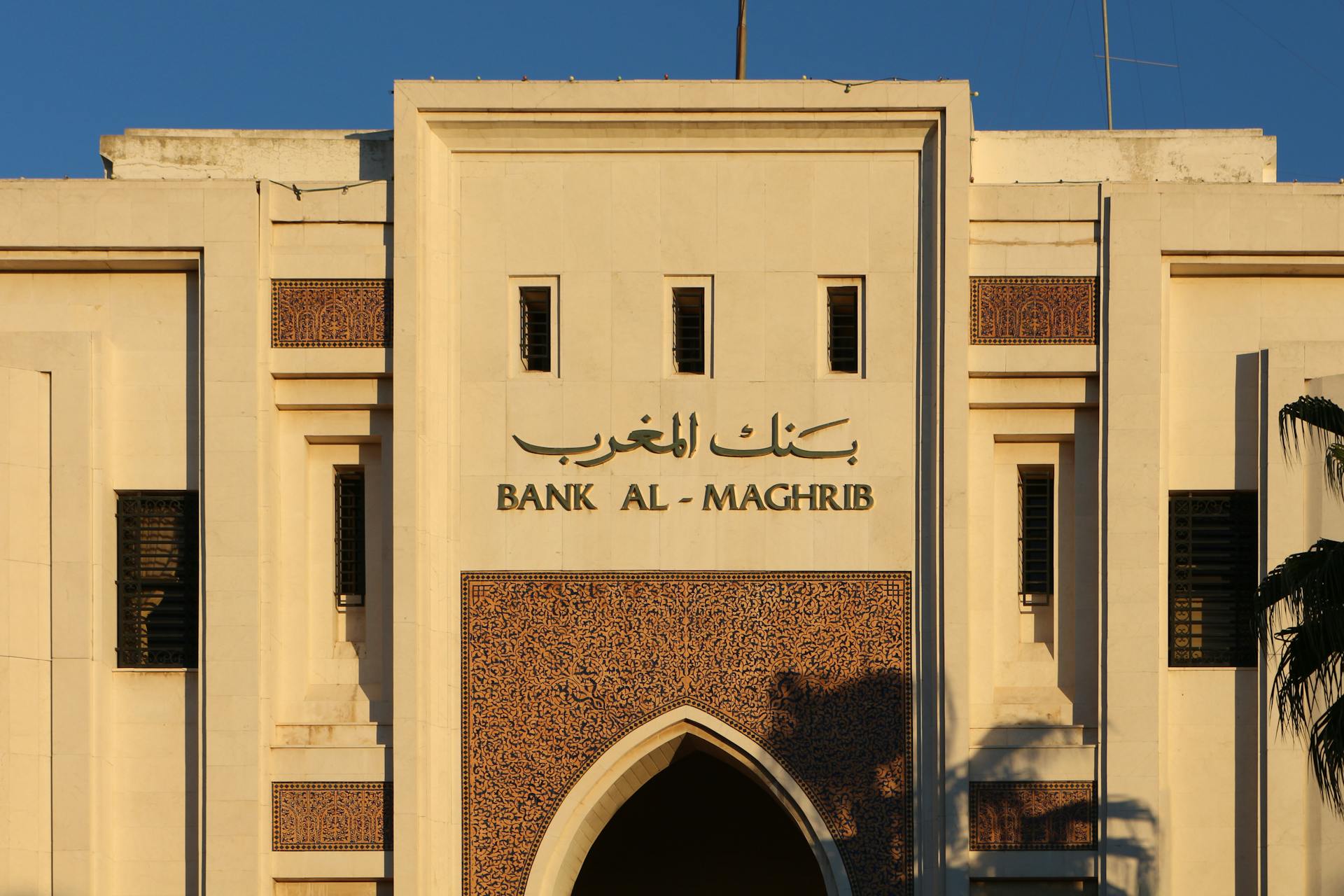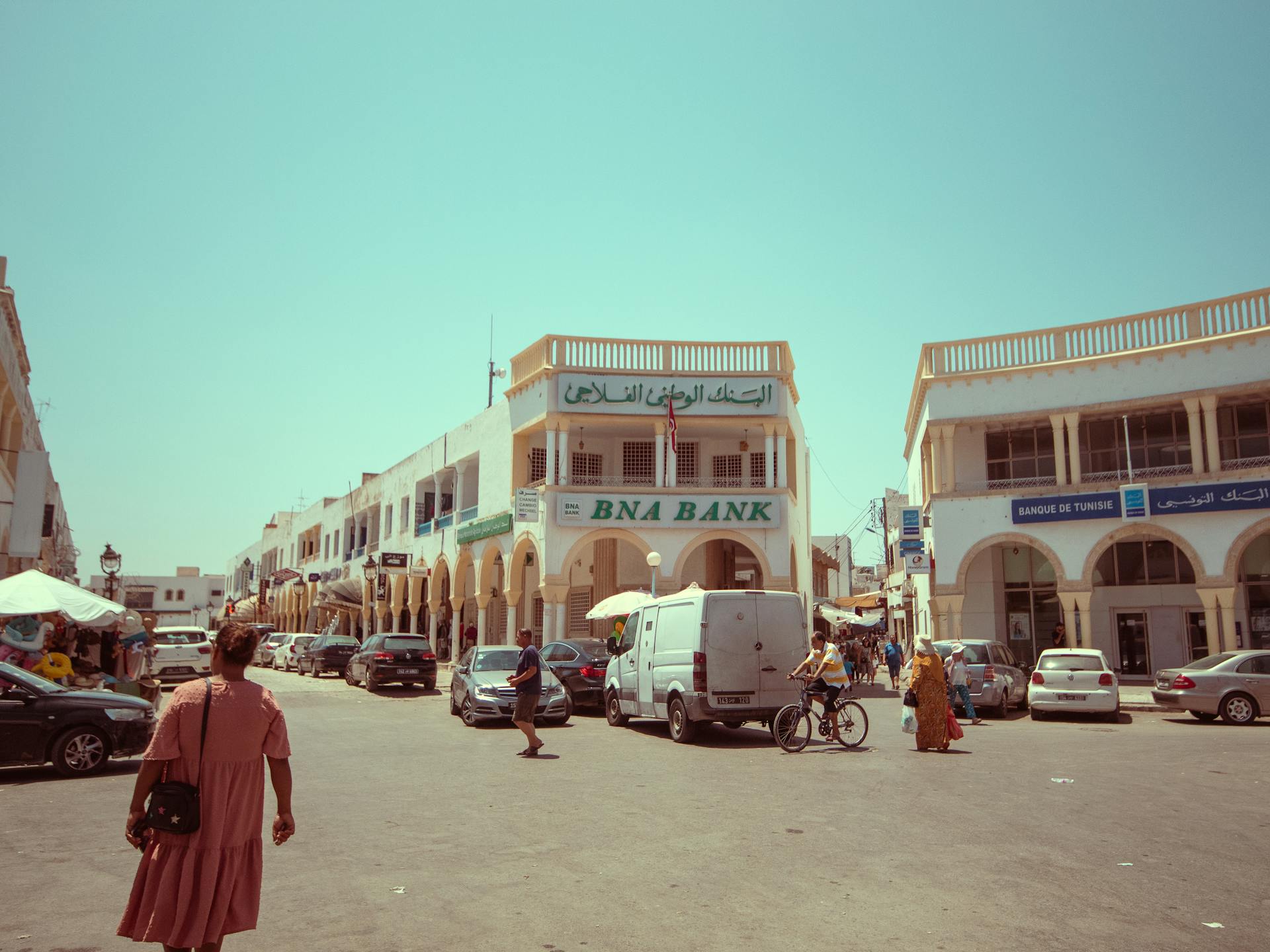
The banking landscape in Africa is undergoing a significant transformation, driven by technological advancements and changing consumer behaviors. Mobile banking is on the rise, with over 70% of Africans using mobile phones to access financial services.
The adoption of mobile banking is particularly prevalent in countries such as Kenya, where mobile money services like M-Pesa have become an essential part of daily life. According to a recent report, M-Pesa has over 25 million active users.
As a result, traditional banking models are being disrupted, with many African banks now offering mobile banking services to stay competitive. This shift towards digital banking is expected to continue, with mobile banking transactions projected to reach $1 trillion by 2025.
Declining Profitability
The profitability of banks in Africa has been declining over the years, with net interest income shrinking by 10% in 2020 compared to the previous year.
This decline is largely due to the increasing competition from fintech companies and mobile payment services that offer lower fees and more convenient services.
The average return on equity (ROE) of African banks has dropped from 18% in 2015 to 12% in 2020, indicating a significant decline in profitability.
Banks are also facing higher operating costs due to the need to invest in digital infrastructure and cybersecurity measures to stay competitive.
In 2020, the average operating expenses of African banks rose by 15% compared to the previous year, further eroding their profit margins.
The decline in profitability is also affecting the ability of banks to lend to small and medium-sized enterprises (SMEs), which are critical to economic growth in Africa.
Optimizing Resource Allocation
African banks need to achieve productivity gains of between 25 and 30 percent to restore prepandemic profitability. This can be done by focusing on six key areas: retail, central and back office, support functions, IT, real estate, and procurement.
Prioritizing productivity in these areas can help optimize the cost base and better allocate financial resources to fuel growth areas. By doing so, banks can partially counter the erosion of return on equity (ROE).
African banks have already begun this journey in response to the pandemic and a tightening global economy. By accelerating progress in these six areas, banks can pass on gains to consumers and assist governments in advancing financial inclusion.
If African banks are able to optimize their resource allocation in these areas, they can strengthen their role in rebuilding African economies in the postpandemic era.
Industry Trends
African banks are taking control of the sector, pushing multinationals to the side.
Pan-African banks like Standard Bank, Absa Bank, Ecobank, and UBA Bank have amassed strong capital bases, giving them the muscle to finance big infrastructure projects.
These banks have systematically dismantled multinationals' dominance in offering high-end products and services like private banking, treasury, and wealth management.
Regional lenders have also emerged as major players, with banks like GT Bank and Zenith Bank dominating West Africa, and KCB Bank and Equity Bank leading in East Africa.
A Long-term Trend

African banks are pushing for growth through organic expansion and mergers and acquisitions, technology, and innovations, customer-centric service delivery, and cost management.
The emergence of formidable Pan-African banks like Standard Bank, Absa Bank, Ecobank, and others has dismantled the multinationals' dominance in offering high-end products and services.
These Pan-African banks have amassed strong capital bases, giving them the muscle to finance big infrastructure projects and even take the frontline in arranging dollar-dominated syndicated loans.
Regional and semiregional lenders have also disrupted the status quo in key regions, with banks like GT Bank, Zenith Bank, and KCB Bank becoming major players.
Banks that have opted to concentrate on their home markets have cultivated a winning formula by serving niche markets in retail, small and midsize enterprises, and budding corporates.
North Africa banks have succeeded with this approach, especially in shielding off competition.
The consensus among regulators is that further consolidation is coming, which may be beneficial for creating formidable financial institutions anchoring the continent's growth.

African banks' expansion via both M&A and organic growth comes with risks, including divergent regulations, political and socioeconomic disparities, and economic crises.
Some banks, like Ecobank, have managed to find a balance by diversifying their operations across multiple countries and regions.
Ecobank's diversified business model has enabled it to post $1 billion in net revenue in the first half of this year, with its Central, Eastern, and Southern Africa region contributing 32% of the group's revenue.
Massive investments in technology, digitalization, and other innovations have enabled African banks to overcome cross-border challenges and remain competitive.
Climate Change
Climate change is a pressing issue that affects us all, and it's essential to understand its impact on various industries.
The effects of climate change are far-reaching, and one of the most significant consequences is rising sea levels, which can lead to more frequent and severe coastal flooding.
According to the latest data, global sea levels have risen by over 8 inches since 1880, with an average rate of 3.2 millimeters per year.
Expand your knowledge: Bofa Keep the Change
As a result, cities and towns near the coast are experiencing more frequent flooding, causing damage to infrastructure and disrupting daily life.
The tourism industry is particularly vulnerable to climate change, with warmer temperatures and changing weather patterns affecting popular destinations like beach resorts and ski slopes.
In fact, a recent survey found that 75% of tourists are concerned about the impact of climate change on their travel plans.
The energy sector is also being transformed by climate change, with a shift towards renewable energy sources like solar and wind power.
According to the International Energy Agency, solar power has become the cheapest source of electricity in many parts of the world, making it a viable alternative to fossil fuels.
As governments and companies invest in renewable energy, the demand for fossil fuels is declining, leading to a decrease in greenhouse gas emissions.
The Talent Race
The Talent Race is getting fiercer by the day. With the war for talent reaching new heights, companies are scrambling to attract and retain top performers.
According to recent studies, the average cost of replacing an employee is around $4,000. This is a staggering figure that highlights the importance of getting talent acquisition right.
Companies are now focusing on creating a positive work culture to attract and retain top talent. This includes offering flexible work arrangements, professional development opportunities, and a sense of purpose.
Employee experience is no longer just about benefits and perks, but about creating a sense of belonging and connection with the company. This is reflected in the growing trend of companies investing in employee well-being and mental health initiatives.
With the rise of remote work, companies are having to rethink their talent acquisition strategies to accommodate a more distributed workforce. This includes using digital tools to connect with potential employees and creating virtual onboarding experiences.
The talent landscape is changing fast, and companies need to be agile and adaptable to stay ahead of the curve. By focusing on creating a positive work culture and investing in employee well-being, companies can attract and retain top talent in this competitive market.
A fresh viewpoint: List of Predatory Lending Companies
Country Focus
Kenya is leading the way in Africa with its Central Bank of Kenya (CBK) releasing a draft five-year digitalization plan in December 2020, which strongly supports open banking and stresses the importance of regulation.
The plan aims to define standards for API development, including risk-management frameworks, and the National Treasury and Planning department is drafting a policy for digital finance that addresses four strategic objectives, including developing open banking infrastructure.
In Nigeria, the Open Technology Foundation established the Open Banking Nigeria initiative in 2017, and the Central Bank of Nigeria introduced the Regulatory Framework for Open Banking in Nigeria in early 2021, outlining guidelines for data sharing and accessing data and APIs within open banking.
Adedeji Olowe, founder of Lendsqr and a trustee at Open Banking Nigeria, believes variable recurring payments and continuous consent will create a subscription economy in Nigeria, improving cash flow management and allowing businesses to grow.
Ghana is also a country to watch, with the Bank of Ghana launching a regulatory sandbox pilot in March 2021 to promote the development of the fintech sector, including open banking, in a stable and fast-growing economy.
A unique perspective: Argentina Central Bank News
Kenya
Kenya is making significant strides in digitalizing its payment industry. The Central Bank of Kenya (CBK) released a draft five-year digitalization plan in December 2020 to overhaul the country's payment industry.
The plan strongly supports open banking and emphasizes the importance of regulation. CBK will work to define standards for API development, including risk-management frameworks.
The National Treasury and Planning department is also drafting a policy for digital finance. This policy will address four strategic objectives.
Here are the key objectives of the digital finance policy:
- Developing open banking infrastructure
- Ensuring consumer protection
- Creating financial system regulation
- Nurturing the development of the sector
South
South Africa is taking significant steps towards embracing open banking, with the South Africa Reserve Bank collaborating with government agencies and the Intergovernmental Fintech Working Group to establish The Innovation Hub in 2020.
This hub aims to advance experimentation and innovation in fintech, which is crucial for the country's open banking development.
In 2019, two prominent South African banks, Nedbank and Investec, formally adopted open banking, paving the way for the industry's growth.
TrueID, a South African start-up, received significant funding to assist in developing open banking infrastructure, a move that will undoubtedly benefit the country's fintech sector.
The Innovation Hub's focus on experimentation and innovation will likely lead to the creation of new fintech solutions and services, driving the adoption of open banking in South Africa.
These developments are a positive sign for the country's fintech industry and its potential to drive economic growth through open banking.
Intriguing read: Will Synchrony Bank Settle
Ghana
Ghana is a stable and fast-growing economy, making it a favorable environment for the growth of digital financial services.
The Bank of Ghana launched a regulatory sandbox pilot in March 2021 to promote the development of the fintech sector, including open banking.
This move is a significant step towards embracing open banking, and Ghana is now a country to watch as it grows in popularity and the global economy speeds up.
Ghana's stable economy and willingness to adopt innovative financial solutions make it an attractive market for fintech companies and open banking initiatives.
Related reading: List of Financial Institutions in Ghana
Egypt
Egypt is navigating its path toward open banking with cautious optimism, recognizing its potential to enhance financial inclusion and drive competition among financial service providers.
The Central Bank of Egypt (CBE) is actively exploring frameworks to foster the adoption of open banking, which would allow third-party providers to access data to offer diverse financial services and bolster financial inclusion.
An open ecosystem in Egypt would be particularly beneficial, enabling third-party providers to access data and offer a wide range of financial services.
Several critical levers are necessary to enable this open ecosystem, including the development of a common API standard to ensure interoperability and the implementation of FAPI (Financial-grade API) security protocols to protect user data.
The growth in wallets and the large number of fintechs in Egypt are promising indicators of progress toward a more open banking system.
The recent adoption of an instant payments initiative is another positive step forward, but it remains to be seen whether the industry will move ahead of robust regulations and a mandated approach.
For your interest: First Horizon Bank Credit Data Analyst
Future Outlook
Africa's tech start-ups have been on a roll, with over $1 billion in equity raised in 2018 alone. This venture capital boom is a testament to the continent's growing entrepreneurial spirit.
Chinese investors are also taking notice, showing interest in supporting fintech firms and contributing to the growth of the open banking sector. As a result, new fintechs like OnePipe, Stitch, and Okra are emerging, driving momentum in the African open banking and open finance space.
Creating innovation hubs and pushing forward the open banking narrative can be a significant step forward for African countries, allowing them to develop as innovation sites and benefit from home-grown intellectual property and creative talent.
Here's an interesting read: Bank Forward Carrington North Dakota
Market Dynamics
The banking landscape in Africa is rapidly evolving, with a growing number of mobile money services and digital payment platforms on the rise.
In many African countries, mobile money has become a primary means of financial transactions, with services like M-Pesa and MTN Mobile Money processing millions of transactions daily. Mobile money penetration is highest in East Africa, where 70% of the region's mobile money transactions take place.
The growth of digital payments is also driven by increasing internet penetration, with many Africans now having access to smartphones and online banking services. This shift towards digital payments is expected to continue, with mobile payments projected to reach $1.3 billion by 2025.
Check this out: European Payments Initiative
Newcomers Challenge Established Power
New entrants are disrupting traditional industries, forcing established players to adapt or risk being left behind. This is evident in the tech industry, where companies like Google and Amazon have disrupted traditional media and retail models.
Innovative business models are emerging, such as subscription-based services, which are allowing newcomers to bypass traditional distribution channels and reach customers directly. The music streaming service Spotify is a prime example of this, offering a low-cost alternative to traditional music ownership.
Newcomers are often more agile and flexible than established companies, allowing them to quickly respond to changing market conditions and customer needs. This is reflected in the rise of e-commerce, where online retailers like Amazon and Alibaba are able to respond rapidly to shifts in consumer behavior.
As newcomers gain traction, they are increasingly able to compete with established players on price and quality, forcing traditional businesses to rethink their strategies. The rise of budget airlines like Ryanair and Spirit Airlines is a case in point, where low-cost carriers have disrupted traditional airline business models.
Here's an interesting read: Westpac Group Companies
Ecosystem Support
In some advanced open banking markets, third-party providers can access multiple banks through a single aggregator, saving time and money.
This is not the case in all markets, such as South Africa, where there are only a few banks to integrate with.
The need for outsourced expertise in compliance and commercialization is greater in these markets.
It's expensive for banks to build and maintain open APIs, requiring an expansive talent pool to do so.
By outsourcing this work, financial institutions can benefit from the learnings of other markets and implement their open banking infrastructure more cost-effectively.
Regulatory Environment
The regulatory environment in Africa's banking sector is a complex and rapidly evolving landscape. New regulations are constantly being introduced to address issues such as climate change, cybersecurity, and financial stability.
Regulators are exerting greater control over banks and their operations, which is expanding the regulatory perimeter. This means banks must adapt to a new landscape that includes investing in compliance and risk management, fostering strong relationships with regulators, and developing regulatory frameworks that support innovation and growth.
A fresh viewpoint: Banca Intesa San Paolo New York
The challenges presented by this expanding regulatory perimeter are twofold. On one hand, increasing regulatory demands are putting banks under immense pressure to maintain compliance and ensure operational alignment with new regulations. On the other hand, modern technology is emerging as a potent tool to reshape the industry.
Generative AI and digitisation are streamlining compliance and risk management processes, enhancing efficiency and effectiveness in a digitally driven marketplace. These technologies can automate data analysis and monitoring, allowing banks to stay abreast of regulatory changes and adapt quickly to new requirements.
A digitised operation improves transparency and accuracy of reporting and compliance processes, enabling quicker identification and resolution of potential compliance issues. Automated data entry and analysis frees up staff for higher-level tasks, like risk management and strategic planning.
Here are some key benefits of technology in managing the regulatory environment:
- Streamlines compliance and risk management processes
- Enhances efficiency and effectiveness in a digitally driven marketplace
- Improves transparency and accuracy of reporting and compliance processes
- Reduces operational costs and improves efficiency
- Automates data analysis and monitoring
Frequently Asked Questions
Which country has the best banking system in Africa?
Egypt has the strongest banking system in Africa, with 21 top-ranked banks and a significant share of Tier 1 capital and total assets. Its banking sector is a major hub in the continent, offering a wide range of financial services.
Can a US citizen open a bank account in Africa?
Yes, US citizens can open a bank account in Africa, but they may need to consider non-resident accounts with more restrictions
Do people in Africa have bank accounts?
While there's a significant gap in bank account ownership across Africa, about half of adults in Sub-Saharan Africa have an account, with some countries seeing a notable increase in account ownership since 2011.
Sources
- https://www.mckinsey.com/industries/financial-services/our-insights/african-banking-the-productivity-opportunity
- https://gfmag.com/banking/africa-homegrown-banks-push-for-growth/
- https://www.codebtech.com/is-open-banking-the-next-game-changer-for-africa/
- https://www.ey.com/en_za/insights/financial-services/transforming-the-south-african-banking-landscape--eight-emerging
- https://ozoneapi.com/open-banking-in-africa-perspectives-from-nigeria-ghana-egypt-and-south-africa/
Featured Images: pexels.com


